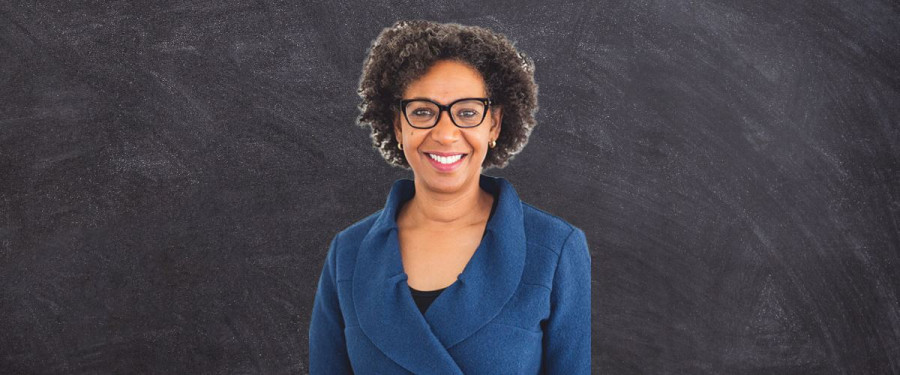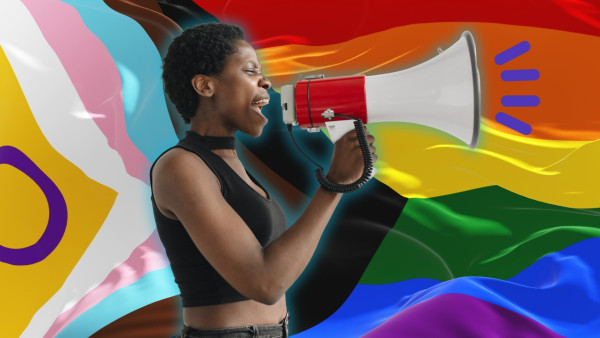With nearly 35 years of experience within the education sector, her commitment to education, specifically centring on the growth and well-being of students, is undeniable.
Her journey began after completing her undergraduate degree when she enrolled in a program that places young university graduates in communities of the opposite language to their native tongue. She spent some time in a Francophone community in New Brunswick, helping teach Francophone students English as a second language. She immediately fell in love with teaching and decided that education was her calling. She began her career as a teacher but, with the help of mentors, shifted towards administrative positions.
“It was through mentorship and encouragement that people saw a leadership quality in me and encouraged me to try out other roles. They helped me to see that direct influence on students in classrooms is valuable, but that when you pursue a greater scope, like in the role of a principal, or superintendent, or roles like this one of director, you can influence system changes and system structures that impact so many people; not just students, but their families as well. As a result, you can help to shape future opportunities.”
Although this work has come with challenges, Director Williams-Taylor has found it valuable and fulfilling. Specifically, she has focused on her goals for a positive educational environment for all students, especially students who have experienced marginalization, such as Black and Indigenous students, and students in the 2SLGBTQ+ communities. Her focus has been to ensure that they have access to opportunities and support from the adults around them to reach their full potential. Central to that is ensuring that the students, who may not always have felt that school was for them, have an experience where they feel safe and at home in Durham District School Board schools. To reach these goals, Williams-Taylor emphasizes that all members of the community, teachers, administrators and parents alike, must have cohesive beliefs that centre respect for students and that support all students.
“It’s about ensuring that our students who will experience barriers and challenges not just in the school system, but in our communities and society, have the confidence that they need to know that there’s help and support, but that they have it inside themselves as well. And part of that is helping students to see themselves reflected in the possibilities.”
Having a direct impact on students’ lives and being a role model for them remains a priority for Williams-Taylor, even within her administrative capacities. For example, she recently visited a high school, targeting their mathematics and science classes, as STEM fields are often where visible minorities, especially women of colour, face marginalization and lack of opportunity. She spoke to young women of colour in these classes about their plans for the future, encouraging them on their journey.
Being a role model for the possibilities these students can imagine for themselves has been central to Williams-Taylor’s decision to take on administrative roles like Director of Education. Before holding this title for the Durham District School Board, Williams-Taylor held a similar position in Ottawa. For much of her time within these roles, she was the only person of colour to hold such a position. However, that has begun to change as other marginalized peoples have stepped into administrative and educational positions in the province in the past few years. It’s important for her to make space to learn from these other administrators and how their paths have differed from hers so that they can best serve all members of their community.
“We’ve become a lot more respectful and open to the fact that many different paths make up the richness of the diversity of our work. So it’s exciting to do this role with the lived experiences I bring and know they’re valued. Particularly bringing my identity to the role, it certainly helps to speak to the fact that we all walk to the roles and journeys we undertake from different paths. But it’s also an example of the fact that we need to open ourselves to hearing, learning, and experiencing other paths as well. It’s not just the way we look that makes us different, but the experiences that we bring that enrich everyone’s opportunities.”
As Black students continue to face anti-Black racism in schools, educators like Williams-Taylor are primordial to ensuring that things change at every level, from systemic administrative decisions to everyday student life in classrooms. Williams-Taylor’s dedication and hard work moves us towards a future of education that allows all students, educators, and their communities to flourish.
“I am but one example of many who have walked through challenging times and navigated obstacles. But it certainly is evidence of two things: one, that we can take hold of our talents and dreams. And then, two, that we take hold of the hands that reach out to us to pull us along. And when we arrive at these leadership positions, to look back and bring other people forward. I’m now in a place where that is my responsibility.”

 By
By 








